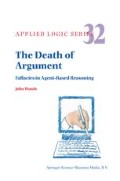Abstract
In the preceding chapter, analogical arguments were construed as meta-arguments; as arguments about arguments in which it is claimed that they instantiate some common deep structure. Analogical predications aren’t arguments at all; they are statements. They raise the hard question of what their truth conditions might be. This question is the business of the present chapter. It is appropriate to sound a warning right at the beginning. Some people are of the view that the secrets of analogical predication cannot be captured by truth conditions [Lichter, 1995]. In this they may be correct. Perhaps analogical predication is better investigated pragmatically, that is, in terms of how they are characteristically used in speech [Thagard et al., 1990]. This is not something to be dogmatic about. The best course is an (energetic) open mind. I am not ready to give up on the truth conditional approach. It is all grist for the mill of the larger question posed by the fallacy of false analogy: “What are analogies anyhow? What good are analogies? Why bother with them? What is the purpose of trying to establish a mapping between two things that do not map onto one another in reality? The answer surely is very complex, but the heart of it must be that it is good for our survival (or our genes’ survival), because we do it all the time” [Hofstadter, 1986, p. 556].
Co-authored with Brent Hudak.
Access this chapter
Tax calculation will be finalised at checkout
Purchases are for personal use only
Preview
Unable to display preview. Download preview PDF.
References
The contemporary unimportance of which is convincingly regretted by James F. Ross in [Ross, 1981]. The direction in which Ross takes the theory of analogy in this book does not bear directly on our own proposals here, and so we shall reserve comment.
A quick look at [Carney and Scheer, 1980; Woods and Walton, 1982; Copi, 1986; Giere, 1984] discloses that analogy receives respectively five pages worth of consideration, none at all, eight pages worth and two. A welcome exception is [Weddle, 1978, pp. 138–160].
See, for example, [Cormac, 1983]. Cf. “We have found... that metaphor is pervasive in everyday life, not just in language but in thought and action” [Lakoff and Johnson, 1980, p. 3]. And “[b] eyond serving us at the growing edge of science and beyond, metaphor figures even in our first learning of language...” [Quine, 1981, p. 188].
The term is Parsons’. See [Parsons, 1980]. A story’s maximal account is the text of the story supplemented by what a competent reader would furnish by way of specification of unexpressed content.
Author information
Authors and Affiliations
Rights and permissions
Copyright information
© 2004 Springer Science+Business Media Dordrecht
About this chapter
Cite this chapter
Woods, J. (2004). Verdi is the Puccini of Music. In: The Death of Argument. Applied Logic Series, vol 32. Springer, Dordrecht. https://doi.org/10.1007/978-1-4020-2712-3_17
Download citation
DOI: https://doi.org/10.1007/978-1-4020-2712-3_17
Publisher Name: Springer, Dordrecht
Print ISBN: 978-90-481-6700-5
Online ISBN: 978-1-4020-2712-3
eBook Packages: Springer Book Archive

